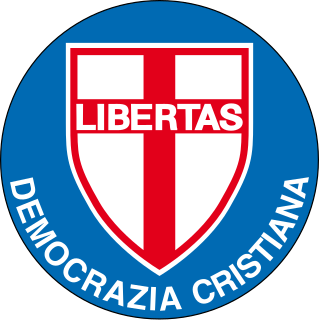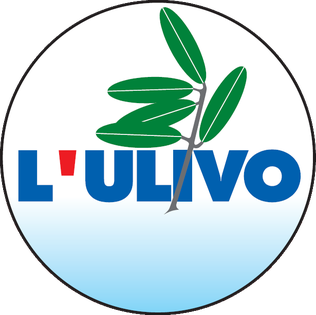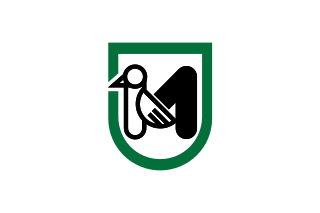The Ligurian regional election of 1980 took place on 8 June 1980.
The Italian Communist Party resulted the largest party, but lost some ground from five years before. After the election, Christian Democracy, the Italian Democratic Socialist Party, the Italian Liberal Party and the Italian Republican Party were able to form a government led by Republican Giovanni Persico, ousting the outgoing Communist-Socialist coalition government.

The Italian Communist Party was a communist political party in Italy.

Christian Democracy was a Christian democratic political party in Italy.

The Italian Democratic Socialist Party was a minor social-democratic political party in Italy. The PSDI, before the 1990s decline in votes and members, had been an important force in Italian politics, being the longest serving partner in government for Christian Democracy. The party's founder and longstanding leader was Giuseppe Saragat, who served as President of the Italian Republic from 1964 to 1971.
The Italian Socialist Party eventually joined the government in 1981 and Alberto Teardo, a Socialist, became President of the Region. Teardo was replaced by fellow Socialist Rinaldo Magnani, a centrist, in 1983.

The Italian Socialist Party was a socialist and later social-democratic political party in Italy. Founded in Genoa in 1892, the PSI dominated the Italian left until after World War II, when it was eclipsed in status by the Italian Communist Party. The Socialists came to special prominence in the 1980s, when their leader Bettino Craxi, who had severed the residual ties with the Soviet Union and re-branded the party as liberal-socialist, served as Prime Minister (1983–1987). The PSI was disbanded in 1994 as a result of the Tangentopoli scandals. Prior to World War I, future dictator Benito Mussolini was a member of the PSI.
This page is based on this
Wikipedia article Text is available under the
CC BY-SA 4.0 license; additional terms may apply.
Images, videos and audio are available under their respective licenses.

The Olive Tree was a denomination used for several successive centre-left political and electoral alliances of Italian political parties from 1995 to 2007.
The Historic Compromise, called also Third Phase or Democratic Alternative, was an Italian historical political alliance and accommodation between the Christian Democrats (DC) and the Italian Communist Party (PCI) in the 1970s.

The Democratic Party of the Left was a democratic-socialist and social-democratic political party in Italy. Founded in February 1991 as the post-communist evolution of the Italian Communist Party, the party was the largest in the Alliance of Progressives and The Olive Tree coalitions. In February 1998, the party merged with minor parties to form Democrats of the Left.

General elections were held in Italy on 19 May 1968 to select the Fifth Republican Parliament. Democrazia Cristiana (DC) remained stable around 38% of the votes. They were marked by a victory of the Communist Party (PCI) passing from 25% of 1963 to c. 30% at the Senate, where it presented jointly with the new Italian Socialist Party of Proletarian Unity (PSIUP), which included members of Socialist Party (PSI) which disagreed the latter's alliance with DC. PSIUP gained c. 4.5% at the Chamber. The Socialist Party and the Democratic Socialist Party (PSDI) presented together as the Unified PSI–PSDI, but gained c. 15%, far less than the sum of what the two parties had obtained separately in 1963.

General elections were held in Italy on 7 May 1972, to select the Sixth Republican Parliament. Democrazia Cristiana (DC) remained stable with around 38% of the votes, as did the Communist Party (PCI) which obtained the same 27% it had in 1968. The Socialist Party (PSI) continued in its decline, reducing to less than 10%. The most important growth was that of the post-fascist Italian Social Movement, who nearly doubled its votes from 4.5% to about 9%, after its leader Giorgio Almirante launched the formula of the National Right, proposing his party as the sole group of the Italian right wing. After a dismaying result of less than 2%, against the 4.5% of 1968, the Italian Socialist Party of Proletarian Unity was disbanded; a majority of its members joined the PCI.

General elections were held in Italy on 3 June 1979, to select the Eighth Republican Parliament. This election was called just a week before the European vote: the failure to hold the two elections at the same time caused much criticism for wasting public money.

General elections were held in Italy on 26 June 1983, to select the Ninth Republican Parliament. The Pentaparty formula, the governative alliance between five centrist parties, caused unexpected problems to Christian Democracy. The alliance was fixed and universal, extended both to the national government and to the local administrations. Considering that the election result did not longer depend by the strength of the DC, but by the strength of the entire Pentapartito, centrist electors began to look at the Christian Democratic vote as not necessary to prevent a Communist success. More, voting for one of the four minor parties of the alliance was seen as a form of moderate protest against the government without giving advantages to the PCI. Other minor effects of this election were a reduction of the referendarian Radical Party and the appearance of some regional forces.

General elections were held in Italy on 14 June 1987, to select the Tenth Republican Parliament. This election marked the final inversion of the trend of the entire republican history of Italy: for the first time, the distance between the Christian Democrats and the Communists grew significantly instead of decreasing, and this fact was seen as the result of the deindustrialization of the country. The growth of the service sector of the economy, and the leadership of former PM Bettino Craxi, gave instead a new strength to the Socialists. A remarkable novelty was the rise of the new Green Lists, while a new party obtained its first two parliamentary seats: the Northern League.

The Calabrian regional election of 1990 took place on 6 May 1990.

The Piedmontese regional election of 1980 took place on 8 June 1980.

The Piedmontese regional election of 1985 took place on 12 May 1985.

The Piedmontese regional election of 1990 took place on 6 May 1990.

The Tuscan regional election of 1980 took place on 8 June 1980.

The Marche regional election of 1980 took place on 8 June 1980.

The Sardinian regional election of 1979 took place on 17 June 1979.

The Friuli-Venezia Giulia regional election of 1978 took place on 25 June 1978.
A popular front is a broad coalition of different political groupings, usually made up of leftists and centrists. Being very broad, they can sometimes include centrist Radical or liberal forces as well as social-democratic and communist groups. Popular fronts are larger in scope than united fronts.
The Pentapartito, commonly shortened to CAF refers to the coalition government of five Italian political parties that formed between June 1981 and April 1991. The coalition comprised the Christian Democracy (DC) party and four secular parties: the Italian Socialist Party (PSI), Italian Democratic Socialist Party (PSDI), Italian Liberal Party (PLI) and Italian Republican Party (PRI).
The centre-left coalition is a political alliance of political parties in Italy active, under several forms and names, since 1995 when The Olive Tree was formed under the leadership of Romano Prodi. The centre-left coalition ruled the country for more than twelve years between 1996 and 2018.
















